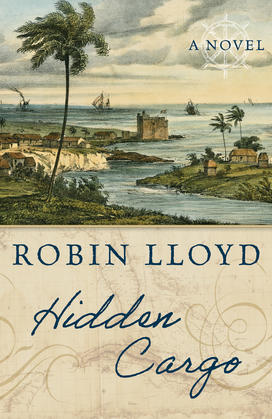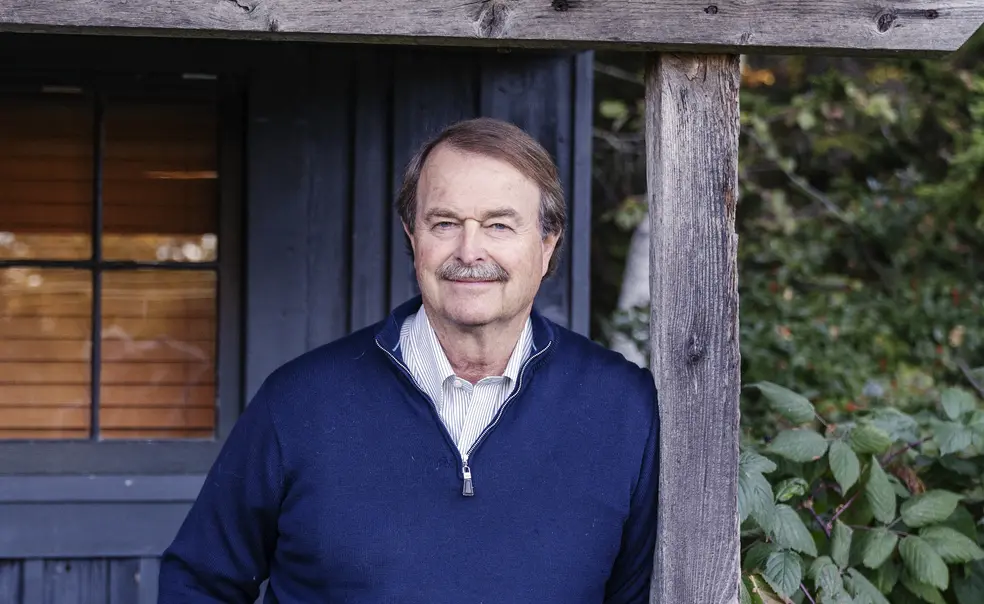Robin Lloyd ’73 Tells the Story of Navy Lieutenant at the Center of an Investigation in New Novel
The book: Hidden Cargo (Lyons Press) tells the fictional story of acting Navy Lieutenant Everett Townsend, who is awaiting discharge in Key West five months after the end of the Civil War. While returning from a routine supply mission, Townsend and his team get caught in a hurricane, and eventually spot a shipwreck that contains a cargo hold filled with dead bodies. The story begins to unfold as Townsend reports the incident and finds himself in the middle of an investigation and the dangerous world of Cuban politics.

The author: Robin Lloyd ’73 is a journalist and novelist. He earned his undergraduate degree from Princeton in Latin American studies and his graduate degree from the School of Journalism at Columbia University. He worked for more than 40 years as an on-air journalist. In addition to Hidden Cargo, he is the author of two additional books, Rough Passage to London and Harbor of Spies.
Excerpt:
A strange stillness hung over the calm water surrounding the walls of the sea fortress. The young Navy lieutenant breathed in deeply as he looked out at the ghostly pewter sky and the unusually flat sea. The morning air had a different feel to it, heavy and jagged like a saw’s edge. Everett Townsend turned to walk down the fort’s granite spiral staircase to a gun casement window. He squared his unshaven jaw and looked out at the horizon again as a touch of foreboding shivered through him. Windless weather and pungent air signaled a storm.
A sudden squeal of iron-rimmed wheels on stone broke the silence. A steady stream of military prisoners all dressed in the same drab prison clothes stumbled out from inside the walls, some of them pulling four-wheeled drays. Townsend watched the shabby patchwork of snarls and sneers, a long line of misery, suffering, and sickness. Another workday had begun at the military prison at Fort Jefferson in the Dry Tortugas.
With the war over, prisoners from both sides were being sent to the Dry Tortugas for all kinds of crimes. Desertion, murder, theft, conspiracy. The prison fortress had come to be called Devil’s Island. Scores of inmates had died in these walls from breakbone fever and its more deadly companion, yellow fever. No prisoners wanted to hear that they were being sent to the Dry Tortugas.
Since the end of hostilities six months ago, Townsend’s gunboat schooner, the USS Rebecca, had become a dispatch and supply vessel. There were five hundred soldiers at Fort Jefferson and five hundred prisoners, all dependent on supplies from Key West. It was dull routine, but it was a better assignment than the steamboat sailors who were scrubbing decks on their ships at anchor, or the sailors assigned to replace channel buoys that the Confederate saboteurs had destroyed. Wartime danger had been replaced by peacetime boredom.
Gone were the big gunships with their smoky funnels that had defined the Navy’s blockade in the Gulf of Mexico. By now, almost all of the thirty ships that made up the East Gulf Naval Squadron had been sent north to be decommissioned and sold. Townsend was one of only a handful of Naval officers still stationed in Key West. He’d served for two years, and he was restless to get on with his life.
A rapid-fire drum roll echoed through the Fort’s parade ground. Townsend pulled out his watch. It was eight a.m. He needed to get clearance from the post quartermaster before they could leave. They would have to weigh anchor soon if they were going to get back to Key West, some sixty-five miles away, before nightfall. But there was no wind, and the USS Rebecca was going nowhere without wind. He heard the familiar hum and whine in his ears, and he slapped his face. “Damn mosquitos.” He shook his head. Nothing those man-eating buggers like more than dead air.
A line of Black soldiers with their brass-buttoned blue uniforms and shining rifles marched by to take their positions. So much pride and hope in those faces, he thought to himself. He knew these men were with the 82nd Colored Infantry, some of whom had run away from plantations to enlist, and who now probably wanted to be discharged just as much as he did. The Navy lieutenant had tried hard to put the war behind him, but the sight of these soldiers brought the memories back, unbidden and unwanted.
The crack of shots ringing out from the dark jungle. His friend bleeding, eyes dark with fear. Clyde Hendricks had clutched his hand. Townsend had tried to staunch the bleeding, but there were too many wounds. As his superior officer, he had put Hendricks in danger’s way, and for that he would always punish himself. Townsend had even convinced him that fighting against the Southern Rebellion was his cause, a struggle for emancipation even though Hendricks was a Bahamian. And now his friend had died for that cause.
A slight breeze on his face and the scratchy wisp of rustling palm fronds pulled him back to the present. The wind was coming up, and he felt his spirits rise. Four heavily guarded prisoners, cursing and sneering, shuffled out of the sally port in leg irons and chains ahead of him. His eyes hardened. The dirty faces simmering with resentment were familiar. The four accomplices to Lincoln’s assassin, John Wilkes Booth. They had been convicted a little over three months earlier by a military court in Washington and had been sent to the Dry Tortugas in July. The infamous names of Spangler, Arnold, O’Laughlen, and Samuel Mudd, the doctor who had tended to Booth’s broken ankle. All but Spangler were given life sentences.
Excerpted from Hidden Cargo by Robin Lloyd Copyright © 2023 by Lyons Press. Reprinted by permission of the author.
Reviews:
“A well-crafted historical pulse-pounder…” — Publishers Weekly
“Lloyd’s pacing is pitch-perfect and makes Hidden Cargo a thrilling read for salts of all ages” — Historical Novel Society












No responses yet